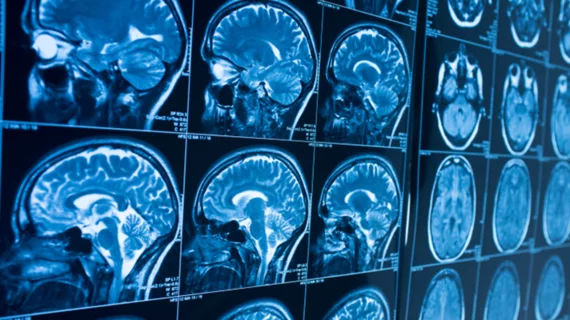Using AI trained with neuroimaging data may be used to successfully predict outcomes for people at risk of psychosis and depression, according to research published online Sept. 26 in JAMA Psychiatry.
Researchers led by Stephen Wood, PhD, from Orygen, the National Center of Excellence in Youth Mental Health in Australia, analyzed how neuroimaging, and AI with neuorimaging-based methods compared to current methods could predict psychosis and depression patients’ ability to socially interact or create and maintain relationships.
The study included 116 people at clinically high risk of developing psychosis and 120 people with onset depression between the ages of 15 to 40. A total of 176 healthy controls were also analyzed.
Wood and colleagues found that AI could correctly predict social outcomes one year later in 83 percent of psychosis patients and 70 percent of patients with depression, according to study results.
"By being able to better predict what will happen to people at high risk of psychosis or with recent onset depression over time, we are able to provide individualized treatments to clients when they first present to mental health services and potentially improve their social functioning,” Wood said in a prepared statement.

